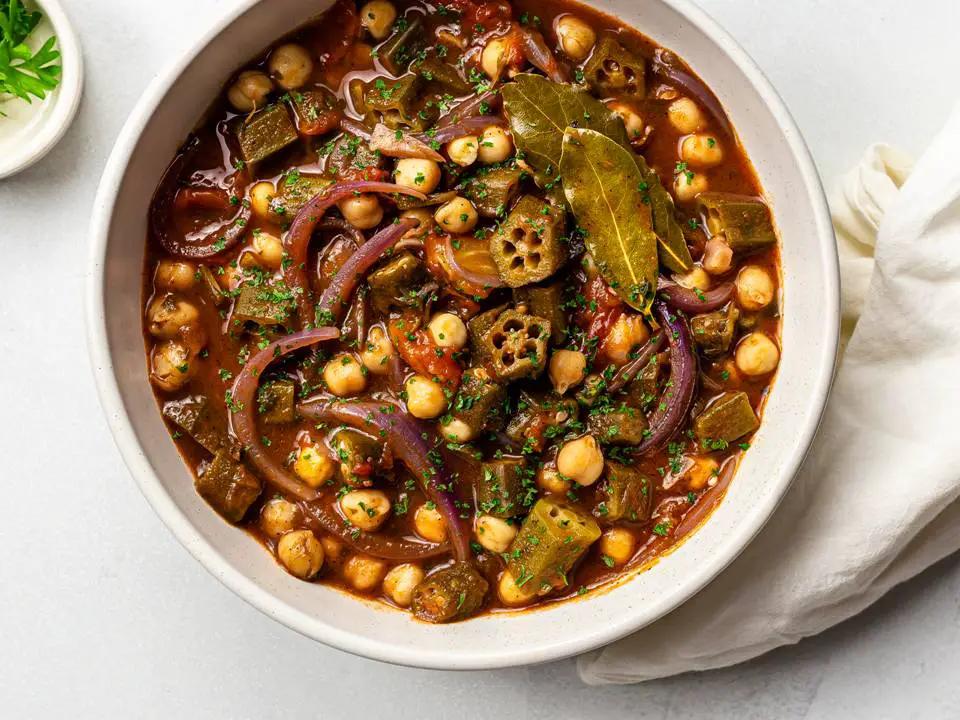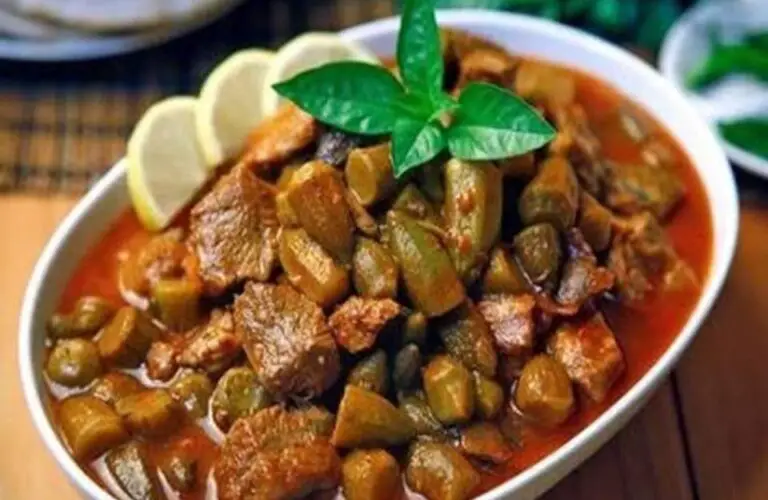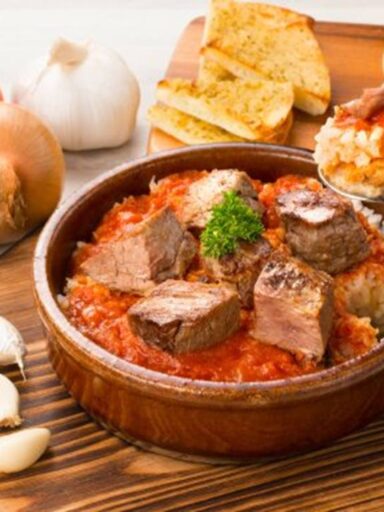Egyptian Bamia (Okra) with Beef or Lamb
Egyptian Bamia with Beef or Lamb is a traditional dish. It highlights the rich, delicious flavors of okra. Okra is a popular vegetable in Middle Eastern and North African cooking. People often call the dish “bamia” or “bamieh.” It combines tender okra with a rich tomato-based sauce. The dish usually includes lamb, beef, or chicken. Vegetarian versions are also common. These versions focus on the earthy, delicate taste of okra.
Okra is a green, pod-like vegetable. It has a unique texture and is high in fiber. As it simmers, it absorbs the flavors of the tomatoes, spices, and meat. This slow cooking creates a thick, flavorful stew.
Bamia (Egyptian Okra) Dish Recipe
Bamia, or Okra Stew, is Known for its rich, hearty flavour, this dish features tender okra cooked in a savoury tomato-based sauce. People typically prepare it with lamb or beef and serve it with rice or bread.
Ingredients:
500g of fresh or frozen okra
300g of diced lamb or beef (optional for vegetarians)
2 large tomatoes (or tomato paste)
1 onion, finely chopped
4 cloves of garlic, minced
2 tbsp of olive oil
1 tsp of ground coriander
1 tsp of ground cumin
1 tsp of paprika
Salt and pepper to taste
1 tbsp of lemon juice
2 cups of vegetable or beef broth
Preparation:
1.To prepare Bamia, start by sautéing the onions and garlic in olive oil until fragrant and translucent. Add the diced lamb or beef, browning it on all sides.

Once the meat is browned, stir in the chopped tomatoes or tomato paste. Add ground coriander, cumin, and paprika. Let the mixture cook for a few minutes. This helps the spices blend and build a rich, aromatic base.
2. Add the okra and broth to the pot. Bring the stew to a gentle simmer. Cover the pot and cook for 30–40 minutes. The okra and meat should become tender. If the sauce is too thick, add more broth. If it’s too thin, let it simmer uncovered until it thickens.
3. When the stew is done, season it with salt, pepper, and a splash of lemon juice. The lemon adds a bright, refreshing touch. Serve the Bamia hot. Garnish with fresh parsley or cilantro for added flavor and color.
4. Bamia is both comforting and nutritious. Okra provides fiber, vitamins, and minerals. The meat adds protein. For a complete meal, serve it with fluffy rice or warm pita bread. The bread soaks up the delicious tomato sauce beautifully.




